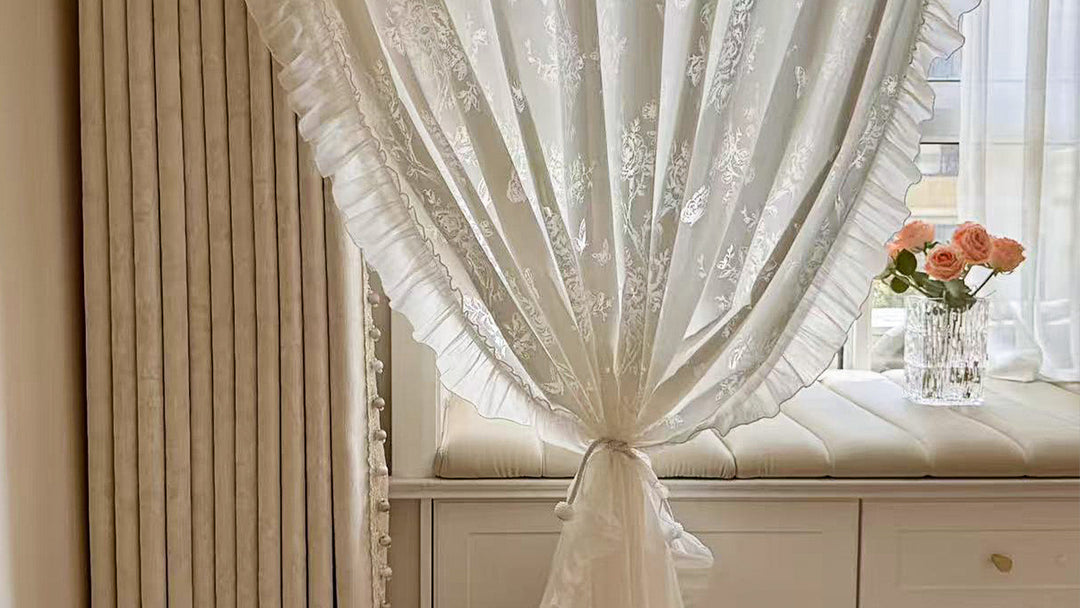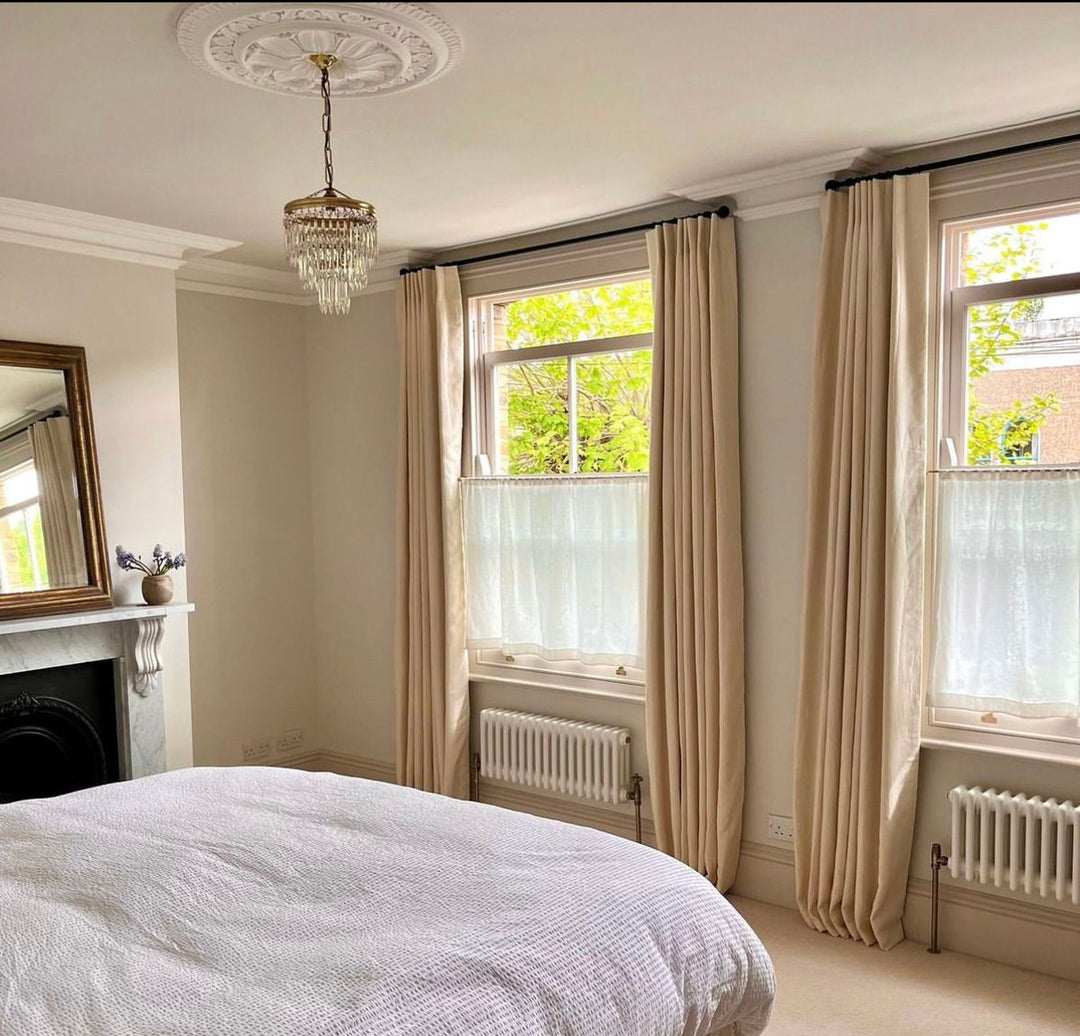Outline for the Article on Auto Curtains
| Main Topic | Subtopics (Detailed and Unique) |
|---|---|
| Introduction | How auto curtains are redefining modern living through smart automation |
| What Are Auto Curtains? | Definition, components, how they work, and what makes them "smart" |
| Benefits of Auto Curtains | Convenience, energy efficiency, privacy, security, and aesthetic enhancement |
| Types of Auto Curtains | Battery-powered, electric plug-in, remote-controlled, app-based, voice-activated |
| Key Components of Auto Curtain Systems | Motors, tracks, remote systems, smart hubs, sensors, and curtain types |
| Compatible Curtain Styles | Grommet, pinch pleat, ripple fold, rod pocket, and track-mounted curtains |
| Auto Curtains vs Traditional Curtains | Comparison in terms of function, control, cost, and installation |
| Smart Home Integration Possibilities | Compatibility with Alexa, Google Home, Apple HomeKit, and smart sensors |
| Best Use Cases for Auto Curtains | Large windows, skylights, high ceilings, bedrooms, media rooms, and elderly-access homes |
| Choosing the Right Auto Curtain System | Factors like size, power source, control type, curtain weight, and room use |
| Leading Auto Curtain Brands | Top-rated manufacturers like SwitchBot, Aqara, Somfy, Yoolax, and SmartWings |
| Installation Guide for Auto Curtains | DIY steps and tools needed for setting up automatic curtain systems |
| Mobile App Control Features | Scheduling, grouping, remote access, geofencing, and light tracking |
| Voice and Sensor Automation | How auto curtains respond to light, temperature, and voice commands |
| Energy Efficiency Benefits | How auto curtains help reduce heating and cooling costs |
| Cost Breakdown and ROI Analysis | Average prices, long-term savings, and value-based justification |
| Security Features of Auto Curtains | Simulated presence, timed closures, and remote locking for windows |
| Customization and Personalization | Adjusting speed, noise level, open-close positions, and routines |
| Troubleshooting Common Issues | Connectivity problems, battery life, motor noise, and firmware updates |
| Maintenance and Longevity | Cleaning tips, motor care, battery replacement, and firmware upgrades |
| Auto Curtains in Interior Design | Blending smart tech with décor aesthetics and styling trends |
| Eco-Friendly Auto Curtain Options | Sustainable materials, low-energy motors, and solar-powered versions |
| Mistakes to Avoid When Buying Auto Curtains | Wrong size, unsupported apps, low motor power, poor Wi-Fi compatibility |
| Auto Curtains | Why they're the future of stylish, tech-savvy interiors |
| FAQs | Expert answers to common questions about auto curtain systems |
| Conclusion | Final thoughts on integrating auto curtains into smart and sustainable home environments |
Auto Curtains
Auto curtains, also known as automatic or motorized curtains, are an innovative addition to the smart home ecosystem, offering seamless control of natural light, privacy, and ambiance through automation. As homes become more connected and responsive, auto curtains stand out as a practical yet luxurious enhancement—merging aesthetics with cutting-edge technology.
Whether operated by remote control, smartphone app, or voice assistant, these systems eliminate the manual hassle of drawing curtains, especially in hard-to-reach or high-traffic areas. From sunrise routines to energy savings, auto curtains are fast becoming a hallmark of modern, mindful living.
What Are Auto Curtains?
Auto curtains are motorized window treatments that open or close automatically via electric motors. These systems are typically connected to:
-
A motorized curtain track or rod
-
A remote control or app-based system
-
Optional smart home integration for automation
They can be pre-scheduled, manually triggered, or respond to voice commands or environmental sensors. Whether you're sitting on your couch, out of town, or waking up to the sunrise, auto curtains deliver a smooth, touchless experience that aligns with your lifestyle.
Benefits of Auto Curtains
-
Convenience: Open or close curtains without lifting a finger
-
Energy Efficiency: Block sun during peak hours or let light in during winter
-
Enhanced Privacy: Timed or sensor-based closing during evenings
-
Security: Simulate presence while you're away by automating curtain movements
-
Aesthetic Modernity: Sleek systems with hidden hardware for minimal, clean interiors
-
Accessibility: Ideal for elderly, mobility-challenged individuals, or tall window installations
Types of Auto Curtains
| Type | Features |
|---|---|
| Battery-Powered | Wireless, rechargeable, and easy to install without electrical wiring |
| Electric Plug-in | Requires nearby power outlet; stable for heavy curtains |
| Remote-Controlled | Operate with a handheld device |
| App-Based | Smartphone apps for scheduling and remote control |
| Voice-Activated | Works with Alexa, Siri, or Google Assistant for hands-free control |
Key Components of Auto Curtain Systems

-
Motor Unit: Powers the movement
-
Curtain Track or Rod: Connects motor and fabric
-
Control Interface: Remote, app, or voice system
-
Power Supply: Battery pack, adapter, or solar panel
-
Smart Hub (optional): Integrates with broader smart home systems
-
Sensors: Light, motion, or temperature for responsive automation
Compatible Curtain Styles
Most auto curtain systems support:
-
Grommet Curtains
-
Pinch Pleat Drapes
-
Rod Pocket Panels
-
Ripple Fold Curtains
-
Wave Curtains
Tracks and motors can often be customized to fit different header styles.
Auto Curtains vs Traditional Curtains
| Aspect | Auto Curtains | Traditional Curtains |
|---|---|---|
| Control | Remote, app, or voice | Manual only |
| Installation | Requires track and motor setup | Simple rod and hook |
| Cost | Higher upfront investment | Lower cost |
| Convenience | High | Moderate |
| Integration | Smart home compatible | Not compatible |
Smart Home Integration Possibilities
Auto curtains can be synced with:
-
Amazon Alexa
-
Google Home
-
Apple HomeKit
-
SmartThings or IFTTT
Features include:
-
Sunrise/Sunset Automation
-
Geofencing (open when you arrive)
-
Light or temperature response
-
“Good Morning” or “Movie Time” routines
Best Use Cases for Auto Curtains
-
Living Rooms: Sync with lighting and thermostat for ambiance
-
Bedrooms: Wake up naturally with sunrise schedules
-
Home Theaters: Close blackout curtains with one voice command
-
Skylights or Tall Windows: No ladders or pulleys required
-
Nursing Homes or Assisted Living: Improve accessibility and comfort
Choosing the Right Auto Curtain System
Consider these factors:
-
Curtain Weight & Length: Choose motors that can support heavy drapes
-
Power Source: Plug-in for permanent use or battery for flexibility
-
Control Preference: Remote-only or full smart home automation
-
Installation Space: Some systems need ceiling mounts or wide tracks
-
Wi-Fi Compatibility: For full app and voice control functionality
Leading Auto Curtain Brands
-
Somfy: Known for premium quality and broad compatibility
-
SwitchBot: Affordable and easy retrofit solutions
-
SmartWings: Smart-enabled and silent operation
-
Aqara: Apple HomeKit integrated systems
-
Yoolax: Great customization for curtain size and motor strength
Installation Guide for Auto Curtains
DIY Installation Basics:
-
Measure your window and curtain track needs
-
Mount the curtain track or rod securely
-
Attach the motor to the track
-
Connect to power (or charge battery unit)
-
Pair with the app or remote
-
Set open/close limits and test movement
Most brands include installation templates and instructions.
Mobile App Control Features
-
Open/Close Scheduling
-
Sunrise/Sunset Sync
-
Customizable Scenes (e.g., “Evening Mode”)
-
Remote Access (control from anywhere)
-
Group Control for multiple rooms or zones
-
Vacation Mode to randomize movements
Voice and Sensor Automation
-
Use voice assistants to open/close with simple commands
-
Install ambient sensors to close curtains when sunlight gets too intense
-
Use motion sensors to open curtains upon entry
Energy Efficiency Benefits

Auto curtains contribute to sustainability by:
-
Blocking solar heat in summer to reduce cooling costs
-
Letting in sunlight during winter to warm rooms passively
-
Reducing reliance on artificial lighting during the day
-
Working with thermostats to maintain optimal room temperatures
Cost Breakdown and ROI Analysis
| Component | Typical Price Range |
|---|---|
| Motorized Curtain Track | $100 – $400 |
| Smart Hub (Optional) | $30 – $150 |
| Remote Control Unit | Often included |
| Curtain Panels (Custom) | $50 – $500+ depending on fabric |
ROI Benefits:
-
Lower energy bills
-
Enhanced security
-
Increased property value
-
Long-term convenience
Security Features of Auto Curtains
-
Scheduled closures at dusk to signal occupancy
-
Vacation Mode to mimic normal activity
-
Integration with alarm systems or motion sensors
Customization and Personalization
-
Open percentage control (10%, 25%, etc.)
-
Adjustable motor speed
-
Noise dampening for silent operations
-
Set multi-room or multi-zone automation
Troubleshooting Common Issues
-
Curtain doesn’t close fully? Recalibrate motor limits
-
Lost Wi-Fi connection? Reboot and re-pair device
-
Battery draining fast? Switch to plug-in or upgrade to better battery
-
Motor is noisy? Lubricate track or adjust speed settings
Maintenance and Longevity
-
Wipe down curtain tracks regularly
-
Recharge or replace batteries every 6–12 months
-
Update firmware on smart systems
-
Avoid overloading motors with heavy, unsupported fabrics
Auto Curtains in Interior Design
Auto curtains are sleek and subtle, making them a favorite in:
-
Modern Minimalist Homes
-
Smart Apartments
-
Luxury Villas
-
Boutique Hotels
Choose hardware colors and fabric types that match your décor for a harmonious look.
Eco-Friendly Auto Curtain Options
-
Low-energy motors reduce power consumption
-
Solar-powered tracks for sustainable operation
-
Fabrics from recycled materials or organic cotton options
-
Brands like SwitchBot and Aqara are promoting energy-efficient models
Mistakes to Avoid When Buying Auto Curtains
-
Incorrect track size or motor capacity
-
Buying without checking app compatibility
-
Neglecting Wi-Fi speed requirements
-
Not measuring curtain weight and fullness
Auto Curtains
Auto curtains represent the future of home design—where convenience, efficiency, and elegance blend seamlessly. With flexible control options, smart integration, and rising eco-conscious models, they offer unmatched lifestyle improvements. Whether you’re automating your entire home or upgrading a single room, auto curtains provide a functional luxury that pays off in both comfort and aesthetics.
FAQs
Are auto curtains difficult to install?
No, most systems are DIY-friendly with templates, or can be professionally installed in under an hour.
Can I convert my existing curtains into auto curtains?
Yes, many brands like SwitchBot and Yoolax offer retrofit solutions for existing setups.
Do auto curtains work during power outages?
Battery-operated models continue to function; plug-in models need backup or manual override.
What’s the lifespan of auto curtain motors?
Typically 5–10 years with proper maintenance.
Can I use voice commands with auto curtains?
Yes, if compatible with Alexa, Google, or Apple smart home platforms.
Are auto curtains child-safe?
Yes. Most are cordless and programmable, making them safe and convenient for families.
Conclusion
Auto curtains are a revolutionary step in home automation. They simplify life, improve comfort, and contribute to energy conservation—all while adding elegance to your interiors. Whether you're starting your smart home journey or looking to upgrade with innovation, auto curtains offer a balance of practicality and prestige that’s hard to beat.
Inbound Link Suggestions:
-
Link to “Smart Home Devices for Beginners”
-
Link to “How to Save Energy at Home”
-
Link to “DIY Curtain Installation Tips”
Outbound Link Suggestions:








